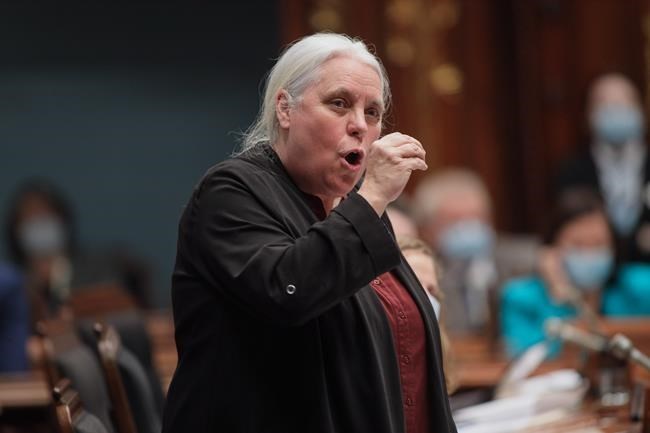MONTREAL — At least two Quebec political parties said Saturday that they will be fielding more women than men as candidates in the fall provincial election, including the party that's leading in the polls on the eve of the campaign launch.
The Coalition Avenir Québec party, which is hoping to form a second majority government on Oct. 3, confirmed Saturday that 69 of its 125 candidates will be women, amounting to 55 per cent of those seeking office. The party described gender parity as "very important" in an email statement.
Left-wing party Québec solidaire has a slightly higher number, with 70 women and 55 men, representing 56 per cent of its full slate of 125.
Québec solidaire co-spokesperson Manon Massé said she believes running so many strong women will stand her party in good stead, even though women represented less than half of those elected in 2018.
"In my opinion, it's quite unique in the history of Quebec to have a political party that wants to make gains in the next election and that presents more women than men," Massé said.
Parti Québécois Leader Paul St-Pierre Plamondon said Saturday that his party will run 53 women and 72 men, which falls within the "parity zone" of at least 40 per cent.
Both Plamondon and Massé said the average age of their candidates was 39 years old. In 2018, the average age of candidates from all parties was 45.
Unlike the other party leaders, Conservative Leader Éric Duhaime said last year that he did not consider gender parity a priority when selecting candidates.
The percentage of women seeking office hit the 40 per cent threshold for the first time in 2018, and they were elected to a record 42 per cent of seats.
Québec solidaire had 66 female candidates in 2018, while the Coalition Avenir Quebec had 65 women on the ballot.
The Quebec Liberal Party has a female leader in Dominique Anglade, while Massé shares her party's top spokesperson role with Gabriel Nadeau-Dubois. Coalition Avenir Québec Leader François Legault has had a female deputy premier, Geneviève Guilbault, ever since he was elected to the premier's office in 2018.
Quebec solidaire said 21 of its candidates come from a visible minority background and six are Indigenous. The Parti Quebecois said it had 10 minority candidates and one who is Indigenous, while the Coalition Avenir Quebec has not yet provided a breakdown.
The Quebec election campaign will officially get underway on Sunday.
This report by The Canadian Press was first published Aug. 27, 2022.
With files from Katrine Desautels and Helen Moka
Morgan Lowrie, The Canadian Press



